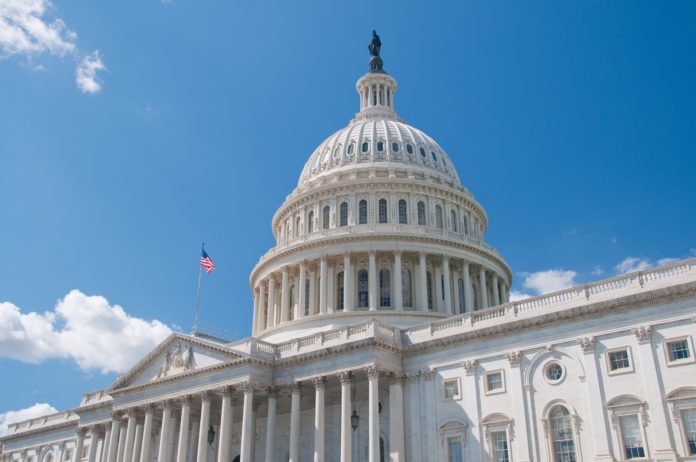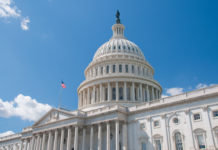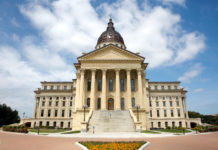Select each title to read more:
Government Shutdown Continues
The Centers for Medicare & Medicaid Services (CMS) released memo QSO-26-01-ALL on October 1, providing additional details on contingency plans for the federal government shutdown related to a lapse in appropriations for Fiscal Year 2026. As noted in the FY 2026 CMS Lapse Plan, survey and certification activities will be limited during the shutdown.
Survey activities for nursing homes will be limited to investigations of complaints that are triaged at levels of immediate jeopardy or alleging actual harm. Revisits, either desk revisits or on-site revisits, will only be conducted in situations where a revisit is required to prevent termination of Medicare participation. Enforcement activities related to these surveys will continue. Informal Dispute Resolutions (IDRs/IIDRs) related to these surveys will also continue only in circumstances where an immediate adverse action will be taken during the period of shutdown. All other survey activities and IDRs will be suspended until further notice.
For revisits that are necessary to end a per-day civil money penalty (CMP) or denial of payment, these revisits will not occur; however, CMS will provide instructions on how these situations will be handled subsequent to the government shutdown. LeadingAge also notes that while the Centers for Disease Control & Prevention (CDC) did not adopt COVID-19 vaccine recommendations prior to the government shutdown, nursing homes should continue efforts to comply with requirements for educating and offering COVID vaccines and for reporting COVID vaccination status of healthcare personnel through the National Healthcare Safety Network (NHSN). The definition of “up to date” has not been determined for Quarter 4 reporting, which began September 29, but LeadingAge has been advised that providers should continue to report according to the Quarter 3 definition until further notice.
LeadingAge will share additional updates from CMS and CDC as they become available. The memo also contains details on hospice and home health surveys that we will provide more detail on tomorrow — notably, hospice surveys funded by the Consolidated Appropriations Act of 2021 (standard surveys every 3 years and SFP surveys which have not yet commenced) are considered mandatory and will continue during the shutdown.
MLN Notice On Telehealth Related to Shutdown Released
On October 1, CMS released an MLN article on telehealth policy changes triggered by the shutdown. The MLN notes that when certain legislative payment provisions (“extenders”) are scheduled to expire, CMS directs all Medicare Administrative Contractors (MACs) to implement a temporary claims hold. This standard practice is typically up to 10 business days and ensures that Medicare payments are accurate and consistent with statutory requirements. The hold prevents the need for reprocessing large volumes of claims should Congress act after the statutory expiration date and should have a minimal impact on providers due to the 14-day payment floor. Providers may continue to submit claims during this period, but payment will not be released until the hold is lifted.
The MLN also discusses issuing Advanced Notices of Beneficiary Non Coverage. Medicare Shared Savings Program Accountable Care Organizations (MSSP ACOs) that are under two-sided risk arrangements were given their own Telehealth waivers under the Bipartisan Budget Act of 2018. Explicitly, the law expands the use of Telehealth by waiving geographic restrictions that apply in traditional Medicare FFS and allowing beneficiaries to receive Telehealth services from their home. Physicians and clinicians in these eligible MSSP ACOs, therefore, can continue to provide Telehealth services to their ACO beneficiaries and be paid for these services during the government shutdown. Additional information on this authority can be found here.
Medicare and Medicare Advantage During the Shutdown
During a shutdown, Medicare payments continue to flow to providers and Medicare Advantage (MA) plans. MA Annual Open Enrollment will begin on October 15, as scheduled, and the Medicare plan finder at Medicare.gov has already been updated and is live with 2026 MA plan offerings, as of October 1. We also understand that beneficiaries will still be able to get their benefits questions answered at 1-800-Medicare but wait times may be longer. The Department of Health and Human Services (HHS) notes in their CMS lapse plan that certain outreach and education activities will cease or slow down though there are not a lot of specifics.
“This could include local and national engagement activities, Medicare card and other mailings, and other beneficiary facing activities.” We expect that State Health Insurance Program offices that assist Medicare beneficiaries in evaluating their Medicare options will be unavailable during the shutdown. CMS will be operating at 50% staffing during this time.
Keep up with all LeadingAge articles about the shutdown in LeadingAge’s fiscal year 2026 serial post.
Remote NCLEX Testing Likely to Launch in 2026
The National Council of State Boards of Nursing (NCSBN) announced plans to introduce remote NCLEX testing potentially as early as 2026. Although no official launch date has been confirmed, the announcement is welcome news for nursing licensure accessibility. Remote NCLEX testing would allow eligible candidates to take the exam from home or another approved location, eliminating the need to travel to an official test center. The exam would maintain the same content, length, scoring and standards as the in-person version, and remote testing would be optional – candidates could still choose to test at a center. Importantly, remote testing would be available to both U.S.-based and international nursing candidates.
Regarding security, NCSBN says it will use advanced technology and robust measures for remote proctoring in order to ensure exam integrity. For test takers, the potential benefits would be myriad. Remote testing would offer candidates the flexibility to choose a time and location that suits them and the comfort of a familiar environment that could reduce stress and improve performance. Moreover, this development would reduce barriers to access, which may be particularly beneficial to international test takers who, in some cases, acquire substantial travel and visa costs to get to a testing center abroad. By lowering those logistical barriers and potentially speeding up licensure, this change could impact international nurse recruitment pipelines. LeadingAge will share updates as more details and a specific timeline become available.





